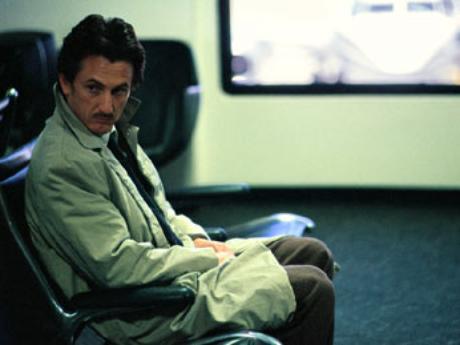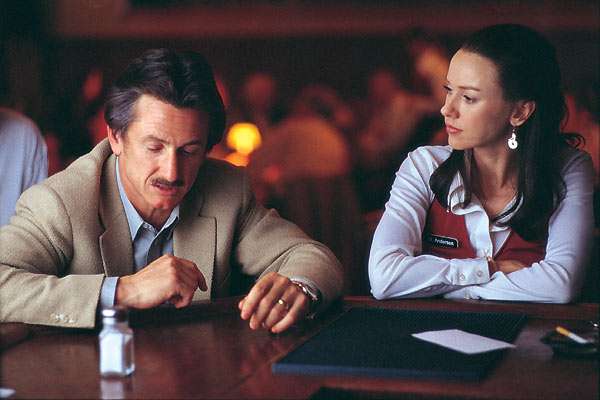“More alarming were Richard Nixon’s last years at the White House. After a good many evening martinis, he would call Henry Kissinger, and the secretary of state would grin silently as he passed around the telephone so that others could listen to their commander in chief’s unbalanced ramblings. Since Nixon was in a position to blow us all up, this suggests a somewhat esoteric sense of humor on Kissinger’s part.” With the fall of Britain’s Charles Kennedy, Slate‘s Geoffrey Wheatcroft very briefly surveys the sordid history of alcoholism in politics. (He could, I think, have done more with The Alcoholic Republic.)
Tag: Richard Nixon
Dubya for DeLay (and a Heck for Rummy)
In an interview with FOX News’s Brit Hume, Dubya backs Boss DeLay, saying he is innocent of money laundering. “It is highly unusual for a president to express an opinion on a pending legal case. Richard M. Nixon, for instance, was widely criticized for declaring Charles Manson ‘guilty, directly or indirectly’ of murder while Manson’s trial was ongoing.” Also in the interview, Dubya tried to pin Casino Jack on both parties and gave Rumsfeld the Brownie thumbs up. Update: The backlash begins.
Throat Cleared.
As suspected by several journalists and at the ripe young age of 91, Deep Throat reveals himself to Vanity Fair as W. Mark Felt, the FBI’s #2 man during Watergate. “‘I don’t think (being Deep Throat) was anything to be proud of,’ Felt indicated to his son, Mark Jr., at one point, according to the article. ‘You (should) not leak information to anyone.’” Update: With great hullabaloo, the Post confirms. Update 2: Nixon weighs in, as do Slate‘s Tim Noah (multiple times) and David Greenberg.
Walt Nixon World.
“Bringing Kutler to the library was going to be like Nixon going to China.” The Nixon library in Yorba Linda — the only presidential library under private management — incurs the wrath of the historical community by spiking a conference on the Vietnam War that would undoubtedly have been critical of Tricky Dick. Whatsmore, “historians still did not have access to about 800 hours of tapes and 50,000 documents withheld by the Nixon estate on the grounds that they deal with personal or political, rather than presidential, matters.” That represents a significantly larger gap in the historical record than 18 and a half minutes.
All the President’s Men.
Journalism then and now: As Slate writer and Nixon historian David Greenberg reports in from the opening of the Watergate papers, Salon‘s Eric Boehlert surveys the strange case of “Jeff Gannon”, a.k.a. James Guckert, fake newsman for Dubya.
Death of a Salesman.

Then again, Samuel Byck wasn’t like most people either…in fact, that may be the biggest problem with this otherwise haunting film. Played for laughs in the Sondheim Assassins, Byck here is portrayed as a beaten-down American Everyman of the Willy Loman/Travis Bickle school, albeit one with a Pulp Fiction-like problem with authority and a frozen run of luck like you read about. But, while the film’s hold lies in Sean Penn’s powerful portrayal of a down-on-his-heels, borderline-stable guy who gets one too many doors slammed in his face (to Penn’s credit, his performance never really feels like a stunt, as it might have with a lesser actor), the real Samuel Byck was an even stranger bird than this film lets on. For example, there’s no mention of Byck’s protesting outside the White House in a Santa suit here, and the whole tapes-to-Leonard-Bernstein angle is played as straight as it possibly can be.
But, historical veracity aside, The Assassination of Richard Nixon still makes for a grim and compelling 90 minutes of darkening gloom, anchored by Sean Penn’s slow, fidgety burn. (Watts, Don Cheadle, Michael Wincott, and Jack Thompson all do good character work here, but the film is Penn’s, and he’s the only one to leave a mark.) The movie’s unrelenting downward trajectory is clear from the opening titles, and the final scene at BWI airport probably played a few minutes too long, particularly as Byck awaits boarding for his final destination. All in all, though, The Assassination of Richard Nixon is a somber inquiry into a life of quiet desperation, and a sad reminder that, regardless of what our American dream may promise, there are no guarantees in this world, and all too often no respite for the damned.

Lemony Snicket, Sour Byck.
In today’s movie bin, a post-Eternal Sunshine Jim Carrey returns to hamming it up in the full trailer for Lemony Snicket’s A Series of Unfortunate Events, and Sean Penn (with the aid of 21 Grams co-star Naomi Watts and Don Cheadle) resurrects Samuel Byck (also featured in Stephen Sondheim’s Assassins) in the international teaser for The Assassination of Richard Nixon.
Sarge Sidelined?
Just in case John Kerry wasn’t feeling enough pressure about his forthcoming choice of a running mate, The Atlantic Monthly‘s Scott Stossel imagines how Sargent Shriver on the Humphrey ticket could have made all the difference in the bitterly (and closely) contested election of 1968.
President Potty-Mouth?
The White House tsk-tsks John Kerry for the F-word. C’mon, now. Kerry’s youth-targeted outburst in Rolling Stone undoubtedly has a whiff of Gore-like “let-your-hair-down” calculation/desperation about it, but let’s not make a mountain out of a molehill here. We all know good and well that our presidents and political leaders have been swearing up a blue streak since time immemorial. (Richard “expletive deleted” Nixon is just the most notorious example.) And it wasn’t all that long ago that George “Major League” Dubya and Big Time needed their own mouths washed out with soap. So let he who is without sin cast the first #$%@ stone.
Ghost in the Machine.
Historian David Greenberg and the Washington Post examines Dubya’s stylistic debts to Richard Nixon.
